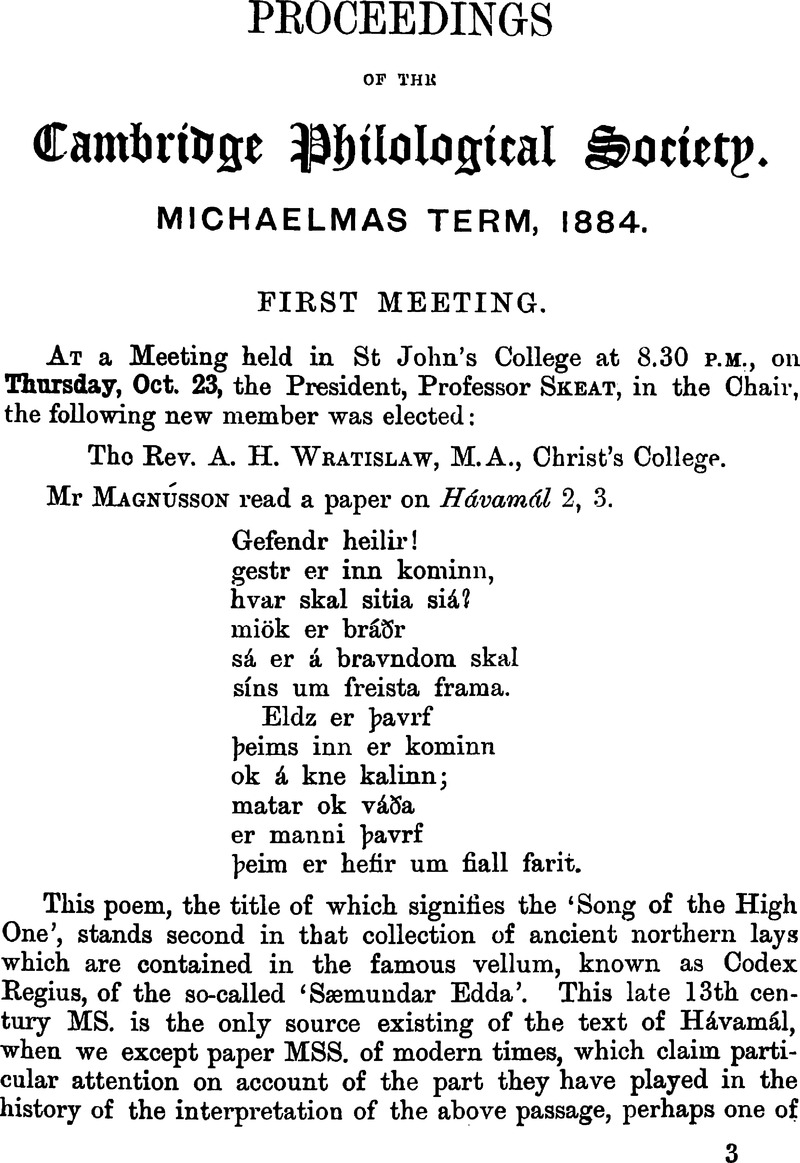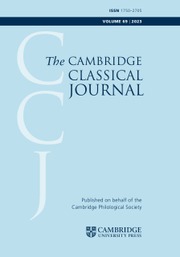No CrossRef data available.
Article contents
First Meeting
Published online by Cambridge University Press: 02 April 2015
Abstract

- Type
- Michaelmas Term, 1884
- Information
- Proceedings of the Cambridge Philological Society (First Series) , Volume 9 , January 1884 , pp. 21 - 35
- Copyright
- Copyright © The Author(s). Published by Cambridge University Press 1884
References
page 22 note 1 ‘ábrautum, saaledes rettet;’ i.e. thus corrected; ‘á braundom, Cd.’ Den ældre Edda, af P. A. Munch, p. 189a.
page 24 note 1 Norræn Fornkvædi, XLIX sqq,
page 25 note 1 My conjecture, for Cod. við.
page 28 note 1 Who does not recognise here the observant eye of this singularly intense and incisive poet, who a few years before had had ample opportunity to observe the peculiarly wavy appearance of the fleece on English sheep?—I am quite aware that my interpretation differs radically from the current one.
page 29 note 1 skið inn?
page 29 note 2 S. E. i. 338:—.‘ok Ϸykkir Ϸat vel allt, er með líkindum ferr ok eðli.‐There is no lack of illustrative analogies. An oak is a tree ; by certain processes it eventually makes a ship, hence oak = ship; cfr. Egill: ‘dróg ek eik á flot við ísabrot’ I drew my oak= ship afloat, &c. ‘Askr’, the ash, by similiar processes becomes a ship, hence ‘askr’= ship; by other processes it becomes the handle of a spear, hence ‘askr’ =spear. ‘Yr’ =yew tree, this tree gave the best bow staves, hence ‘ýr’ =bow.
page 31 note 1 ‘Bráðr’ itself is an absorptive contraction of ‘brandr’ and means originally hot, burning, then, derivatively, hasty, quick, a sense it must inherit from brandr as ‘swift mover’ in a derived signification from rushing fire (cf. ‘Ital. tosto, French, tôt = Lat. tostus from torreo’, Rickert). This absorptive contraction has hitherto been too little heeded; by means of it we are able to interpret correctly such forms as, for instance, ‘táðhreinn’ = ‘táðhreinn,’ ‘táð’ = ‘tandr’ which means fire; ‘táhreinn’ therefore = refined, purified in the refiner's fire. That this is the true derivation is shown by the double form ‘tandr-táhreinn’ still in common use.




